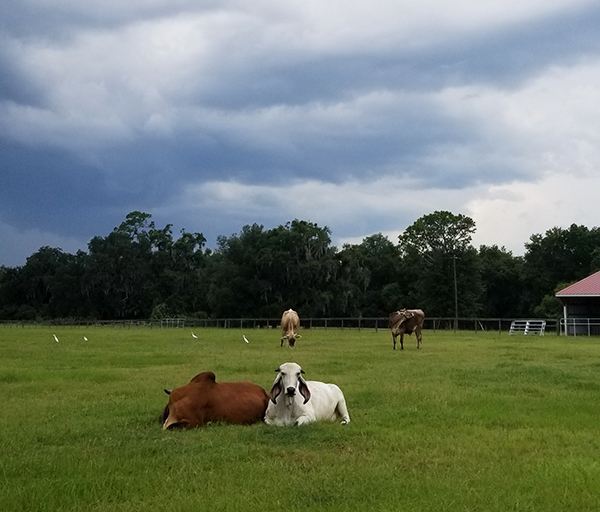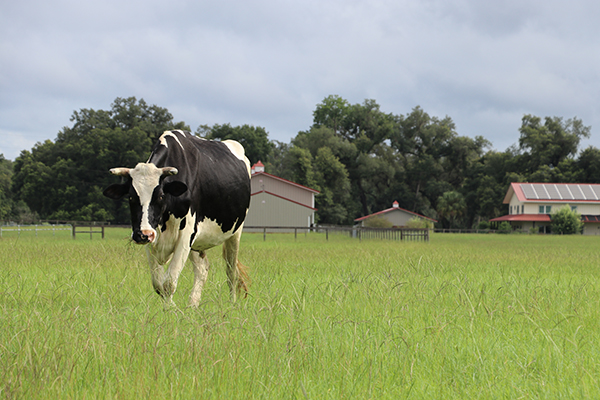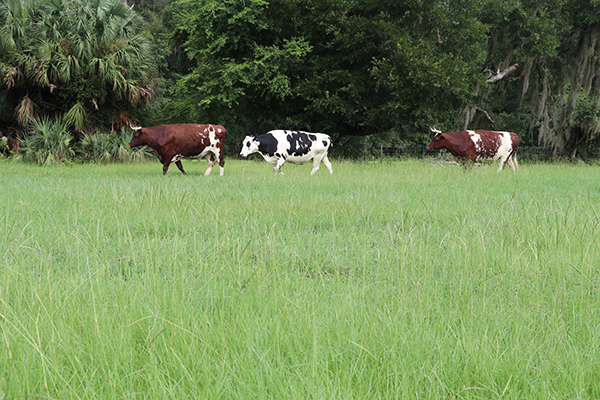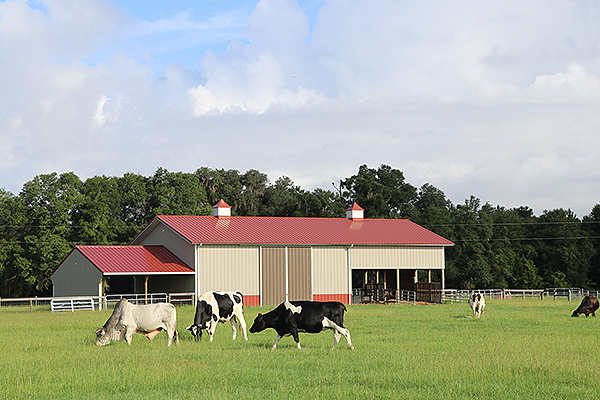- ISCOWP E-newsletters
In 2008, ISCOWP members rescued three cows: Priyavrata, Sri Uddharan Datta Thakur, and Amrita. Balabhadra, the president of ISCOWP...
The two Brown Swiss oxen you see running about, Dhruva Laddhu and Kalyan Tamal, were rescued from a dairy where they were living in tiny hutches and fed by a milk drip. Balaji, who is in many ISCOWP cow sanctuary videos, vlogged them moving from the back pasture to the front pasture where he found a surprise in the cow pasture!
We practice rotational grazing, which allows the fields to remain healthy by moving the herd between the pastures. We move them about every three weeks to a month. The fields are very lush now since the summer rains came. The cows are very happy and healthy, eating the plentiful, tasty, green grass. Cattle are grazing animals. You can see a happy cow when there is plenty of green grass to eat.
At the ISCOWP cow sanctuary, we practice cow protection, which means the cows under our care will never be slaughtered. We rescue many of our cows and oxen from a situation where they were destined to be slaughtered, like an ox from a dairy farm. We also propose a change in diet to veganism or vegetarianism, basically a plant-based diet. Becoming a vegan lessens the consumption of not only meat but commercial dairy products which lessens the suffering of these often cute animals. We believe in animal rights because we believe animals have souls, emotions as we do. The videos we vlog are to bring people closer to these rescued animals and get a look into their lives. Sometimes they act like funny animals, sometimes like cute animals, and sometimes they show their noble personalities and appear as the holy cow.
The photos below show the lush grass in the back pasture where most of the herd (older cows) are pasturing. The herd is doing well in this environment. We are surprised to see some of our older cows, who had arthritic problems before we moved to this location, maintaining their health. When winter comes, we can see a slight decline in the older cows and then when the summer rains come they seem to perk up. Life for the cows in this more tropical climate seems to be easier for them than when we were in West Virginia where there are much colder winters. Thank you, everyone, for your support which enables us to protect the ISCOWP herd.







7016 SE 92 Terrace
Gainesville, FL 32641 USA
Phone: 352-792-6777
E-mail ISCOWP
Keep up with the latest news from ISCOWP. Sign up with your e-mail address to receive updates.
"*" indicates required fields
© 2023 This is the only official site of The International Society for Cow Protection, Inc. (ISCOWP) incorporated in 1990, located only in Gainesville, FL, USA. ISCOWP and The Lotus/Cow symbol are registered service marks of The International Society for Cow Protection, Inc. Website content can not be reproduced without permission.